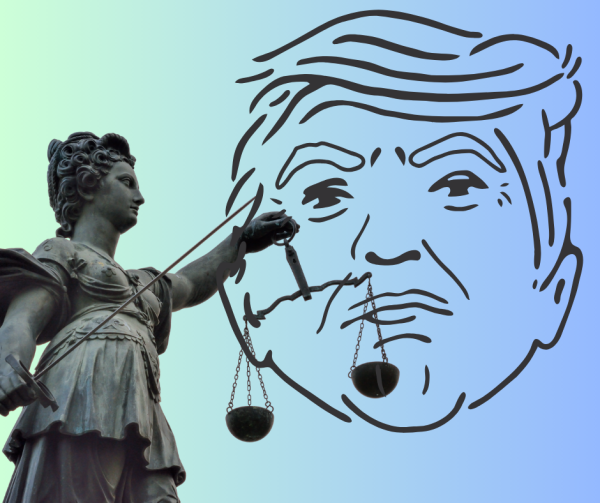The Apple that won’t crack
FBI challenges Apple user privacy with no luck
News of Apple’s non-compliance to the FBI’s court order to bypass encryption of an iPhone used by one of the San Bernardino shooters has caused an uproar, sparking arguments of privacy versus limitations of national security.
The case reintroduced a growing debate: should personal privacy be sacrificed in order to satisfy government needs?
The justification for electronic surveillance has long been a measure of preventing terrorism, however, the issue is also whether technology companies should have the right to block the government from accessing private communications of their users. Especially, when those communications concern threats of national security.
The FBI intended to gather information that would help to determine if the San Bernardino shooters communicated with the Islamic State in preparation for the attacks. As a way to possibly prevent future attacks, it is understandable how authorities could benefit from accessing that kind of information.
Unfortunately for the FBI, getting into someone else’s password protected iPhone is no easy task, and Apple’s software currently has a system in place that wipes out all data after 10 failed passcode attempts.
Even after a federal court order was issued on behalf of the FBI, Apple rejected requests to bypass the software that would erase data and allow the iPhone to be fully accessible.
To many people Apple may seem like the bad guy but, the truth is, Apple is within its own right to protect the security of its customers.
It wouldn’t make sense to jeopardize the security of many, for a few.
With promises of privacy to their customers, Apple is requested by the FBI to break those promises for reasons that haven’t even been proven to be of much help.
Of the 225 terrorism cases in the U.S. since 2002, American telephone metadata initiated only 1.8 percent of investigations, according to a 2014 study by New America, a nonpartisan think tank group that specializes in public policy issues including national security.
Following the study, President Barack Obama’s appointed review board also determined that the National Security Agency’s data collection program, “was not essential to preventing attacks,” according to an article by Washington Post.
Additionally, Apple can’t currently break into the phone themselves, software would have to be developed to do so. From Apple’s point of view, once that software is out of their own hands it would have the potential to end up in the wrong ones, possibly those of hackers and foreign governments.
In a statement on Apple’s website, Apple CEO Tim Cook stated, “Building a version of iOS that bypasses security in this way would undeniably create a backdoor. While the government may argue that its use would be limited to this case, there is no way to guarantee such control.”
Cook is right about the precedent that can be set if Apple allows the FBI to get through security to access all of the data, and the FBI is likely to demand more phones be accessed in the same manner if granted.
While some may argue that it’s a one time thing and national security should come first, its been continuously proven that the government oversteps its boundaries, disregarding the rights of anyone they deem necessary.
While it may start with one iPhone, it can spiral out of control quickly, just as the Patriot Act did following 9/11.
What began as a measure for the NSA to track and find potential terrorist attacks, led to the data collection of over 800,000 financial transactions, more than 110,000 names and almost 200 million text messages per day, according to documents released by former NSA employee Edward Snowden.
Data collection started as a safe measure to try and foresee another 9/11 type of attack, but the program was exploited and the privacy of citizens was violated. Power corrupted those in charge and personal privacy was blatantly disrespected.
Apple opening up this backdoor for the FBI will undoubtedly lead to the backdoor system being exploited in the future.
With more than 1 billion active Apple devices in use worldwide, according to an Apple quarterly report from January 2016, Apple would be risking its own reputation and the security of personal data among its entire customer base.
People have a right to their privacy and to not have government agencies track and store all of their communications, invade their private lives and strong-arm through privacy policies of companies that are earnestly upholding those policies.
Protecting this country and its people should be a priority, but privacy among citizens should not be completely sacrificed in order to do it.










